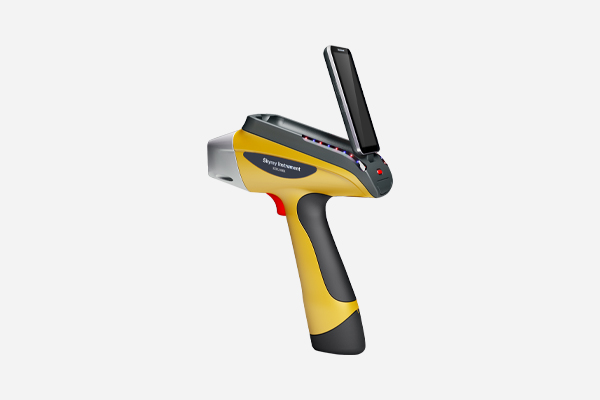Element Analysis | RoHS Testing | XRF Spectrometer

What is Element Analysis
- Element analysis is the scientific process of identifying and quantifying the chemical elements that make up a material, detecting them at both trace and bulk levels.
- This analysis is crucial for maintaining product quality, ensuring safety, and meeting regulatory standards.
- It provides precise data on element presence and concentration to help industries like manufacturing, electronics, metals, food, and pharmaceuticals prevent contamination and enhance product performance.
- Ultimately, element analysis helps companies deliver products that are reliable and compliant with global requirements.
Why Element Analysis is Important
- Element analysis helps safeguard product quality and improve performance by identifying inconsistencies early in the production process.
- It plays a key role in reducing production costs, minimizing material waste, and ensuring regulatory compliance.
- The analysis is also vital for preventing harmful elements from reaching end users.
- It contributes to environmental protection by helping industries adhere to global sustainability standards, resulting in safer, more reliable products for consumers.
Who Needs Element Analysis



Metal & Alloy
Foundry
Oil & Gas
Essential for materials used in electronics to prevent dangerous elements like lead and cadmium from leaching out.
Necessary for verifying that the metal castings used in electronic equipment meet the substance restrictions.
This is to ensure compliance with international environmental regulations for safe global distribution and use.
Definition of XRF Spectrometer
Ensures regulatory compliance: It detects hazardous substances like lead, mercury, and cadmium to ensure products adhere to regulations such as RoHS.
Verifies material composition: In manufacturing, it checks the composition of raw materials to prevent product defects and maintain consistent quality.
Analyzes metal alloys: The device is used in the metals industry to determine the accuracy of alloy composition.
Identifies environmental contaminants: It detects toxic elements in soil and water for environmental testing and analysis.
Why XRF Spectrometer is Important
Rapid and Accurate Results: It provides quick and precise data, which is essential for quality control, regulatory compliance, and material analysis.
Non-Destructive Testing: The technique doesn’t damage samples, saving businesses time and money while preserving the integrity of the materials being tested.
Enhances Safety and Performance: By reliably detecting and quantifying elements, the spectrometer helps improve product performance, protects consumer safety, and ensures adherence to global standards.
About RoHS 1.0
The RoHS2 Directive, 2011/65/EU, prohibits the use of lead and other potentially harmful compounds such as cadmium, mercury, chromium VI, PBBs, and PBDEs in electrical and electronic equipment. RoHS restricts these compounds to 0.1% or 1,000 ppm (with the exception of cadmium, which is restricted to 0.01% or 100 ppm) by weight of homogeneous material. Directive 2015/863, issued on June 4, 2015, revised Directive 2011/65/EU to include four more phthalates, bringing the total number of prohibited compounds to ten. Products in categories 1–7, as well as 10 and 11, must be compliant by July 22, 2019. Products in categories 8 and 9 must conform by July 22, 2021.
The EU RoHS directive is closely connected to the Waste Electrical and Electronic Equipment Directive (WEEE) 2002/96/EC, which establishes collection, recycling, and recovery objectives for electrical products. Similar rules exist in various parts of the world, including China, Japan, South Korea, the United States, Norway, and Turkey. Our chemical specialists assist you in reducing the risk of non-compliance with global and national restricted chemicals rules.
About RoHS 2.0
RoHS 2.0, officially known as Directive 2011/65/EU, is an update to the original Restriction of Hazardous Substances (RoHS) directive, aimed at limiting the use of specific hazardous materials in electrical and electronic equipment (EEE) within the European Union. This directive, which came into effect in July 2011, expands on RoHS 1 by covering a wider range of products, including medical devices, monitoring and control instruments, and all other electrical and electronic equipment not previously specified. It mandates that manufacturers, importers, and distributors ensure their products comply with restrictions on substances such as lead, mercury, cadmium, and certain phthalates to minimize environmental pollution and health risks. Companies must undergo compliance assessments, issue Declarations of Conformity (DoC), and mark products with the CE symbol to indicate adherence to RoHS regulations before they can be sold in the EU market.
To strengthen enforcement, RoHS 2.0 also introduced additional documentation requirements, making manufacturers responsible for maintaining compliance records and demonstrating adherence through technical files. The directive works closely with the Waste Electrical and Electronic Equipment (WEEE) directive, which governs the collection, recycling, and disposal of electronic waste, ensuring a comprehensive approach to environmental protection. While most electrical and electronic products must comply, RoHS 2.0 provides certain exemptions for items where restricted substances are essential, such as military equipment and large-scale industrial tools. Organizations can certify compliance through internal declarations or third-party testing to verify that their products meet the regulatory limits for hazardous substances.
What is RoHS Testing
Manufacturer’s Responsibility: Manufacturers are accountable for ensuring their products meet RoHS compliance standards.
Independent Third-Party Testing: To ensure thorough testing of all hazardous chemicals in every production batch, third-party laboratories are used.
Market Access: Our RoHS testing confirms compliance, enabling you to sell your products in the European Union market with confidence.
Flexible and Efficient Process: The testing procedure is quick and can be integrated into your product’s quality control inspection.
Impartial Results: We ensure unbiased results by analyzing random samples from your production instead of plant-selected ones.
Comprehensive Reporting: Upon completion, you will receive a full report detailing whether your product passed or failed the RoHS compliance test.
Why RoHS Testing is Important
Environmental Protection: Banned materials are considered environmentally hazardous and are known to pollute landfills.
Occupational Safety: These materials are toxic and pose a risk to workers exposed to them during manufacturing and disposal.
Standard Procedure: RoHS Compliance Testing is a critical procedure for manufacturers, retailers, distributors, and recyclers of electrical and electronic components.
EU Market Coverage: This compliance testing also applies to equipment sold and used within the European Union.
Who Must do ROHS Testing



Semicon
Home Appliance
EV Car
Needed to ensure components don’t contain hazardous substances, as they are a core part of all electronics.
Mandatory for legal sale as they are a primary category of electronic products with many internal components that must be checked.
Required for the electronic components within the car, such as batteries and infotainment systems





